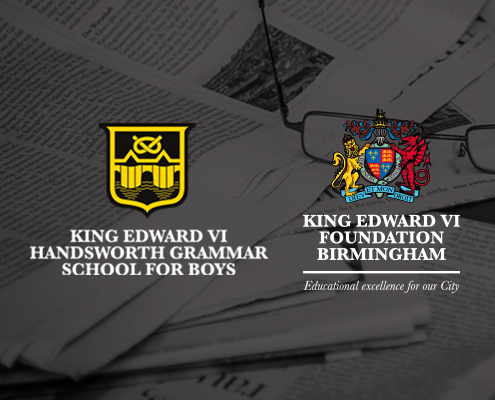GCSE ‘Science Live’ Event
On Tuesday 4 February 2014, a group of us from Years 10 and 11 got the opportunity to attend one of the “GCSE Science Live” events at Symphony Hall . Here we got the chance to see and hear five of Britain’s top and most eminent scientists (in order of appearance: Robert Winston, Alice Roberts, Andrea Sella, Lucie Green and Jim Al-Khalili) . To start off the day we were each issued a booklet with details about each scientist, the lectures and some general articles about studying Science and working as scientists. With much enthusiasm, the first scientist was then introduced (Lord Robert Winston), and he began talking about transgenetic technology. Through this he was able to explain many fascinating processes including apoptosis (programmed cell death) and he sweetly touched on the first successful IVF in history. We then heard from Professor Alice Roberts about her specialism – evolutionary anatomy. “How can a 1.5 million year old skeleton of a young boy shed light on what it means to be human?” – a very profound question which she answered based on the discovery of the skeleton of a young boy, since named “Nariokotome” boy. Not only was Professor Roberts able to explain with absolute clarity the history and timeline behind human evolution, she was able to describe unequivocally the change in human anatomy over the last 1.5 million years. The next scientist on the list was Dr Andrea Sella, who skipped enthusiastically onto the stage. His lecture started off with the question “How did the zebra get its stripes?”; through clever analogies and his almost virtuosic ability of talking with the audience, he was able to draw analogies between biological and chemical processes and compare the inherent patterns of certain chemical solutions to the stripes on the zebra. Next came Lucie Green who expressed her love for our very own Sun. Her description was almost poetic; she talked about ongoing processes happening in the Sun that are seldom noticed, and she described recent satellite missions which will enable us to keep an eye on our fiery neighbour. The last scientist of the day to present was Jim Al-Khalili on what, in my opinion, was the most fascinating topic – he talked about the idea of “time travel” and explained this seemingly improbable possibility using concepts such as time dilation and relativity-mind boggling stuff! During the day we also heard from a Chief Examiner about typical examination mistakes, and tips to improve. A big thanks to Mr Jones for organising the trip – it was a truly memorable experience!
Khubbaib Hasan 11N







